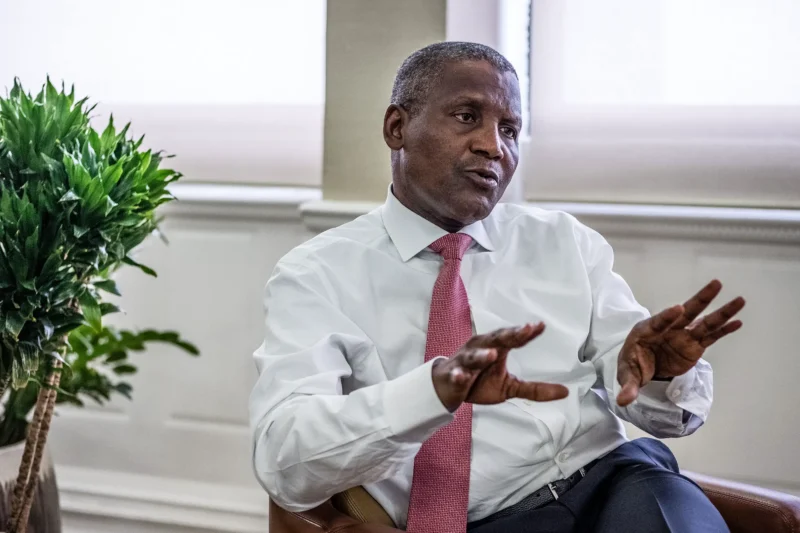Refinery: Oil sector mafia fighting us – Dangote
Africa’s richest person, Aliko Dangote, says local and foreign mafia tried several times to sabotage his $19 billion refinery from coming to fruition. This is as he said he has repaid about $2.4 billion of the $5.5 billion borrowed to build the refinery. According to him, several entities did everything to sabotage the 650,000 barrels […]

dangote
Africa’s richest person, Aliko Dangote, says local and foreign mafia tried several times to sabotage his $19 billion refinery from coming to fruition.
This is as he said he has repaid about $2.4 billion of the $5.5 billion borrowed to build the refinery.
According to him, several entities did everything to sabotage the 650,000 barrels per day facility.
He spoke Wednesday at the Afreximbank annual meetings (AAN) and AfriCaribbean Trade and Investment Forum in Nassau, The Bahamas.
Dangote said he was aware that resistance would always exist, but he did not anticipate it being so harsh.
“Well, I knew that there would be a fight. But I didn’t know that the mafia in oil, they are stronger than the mafia in drugs. I can tell you that. Yes, it’s a fact. The local and foreign mafia tried several times to sabotage the refinery from coming to fruition,” he said.
The businessman, who tagged himself a fighter throughout his life, said the mafias had tried several times to defeat him.
“But I’m a person that has been fighting all my life. You know, so I think it’s part of my life to fight,” he said.
On if he was receiving enough crude oil as feedstock for his refinery from the international oil companies (IOCs), Dangote said: “In a system where for 35 years people are used to counting good money, and all of a sudden they see that the days of counting that money have come to an end, you don’t expect them to pray for you. Of course, you expect them to fight back.
“And I think that is the process that we’re now really going through. But the truth is that, yes, the country, the sub-region, and also the continent, sub-Saharan Africa, need this refinery. So, you expect them to fight through non-supply of crude, non-purchase of the product, but I think it’s all temporary. We’ll get there.”
